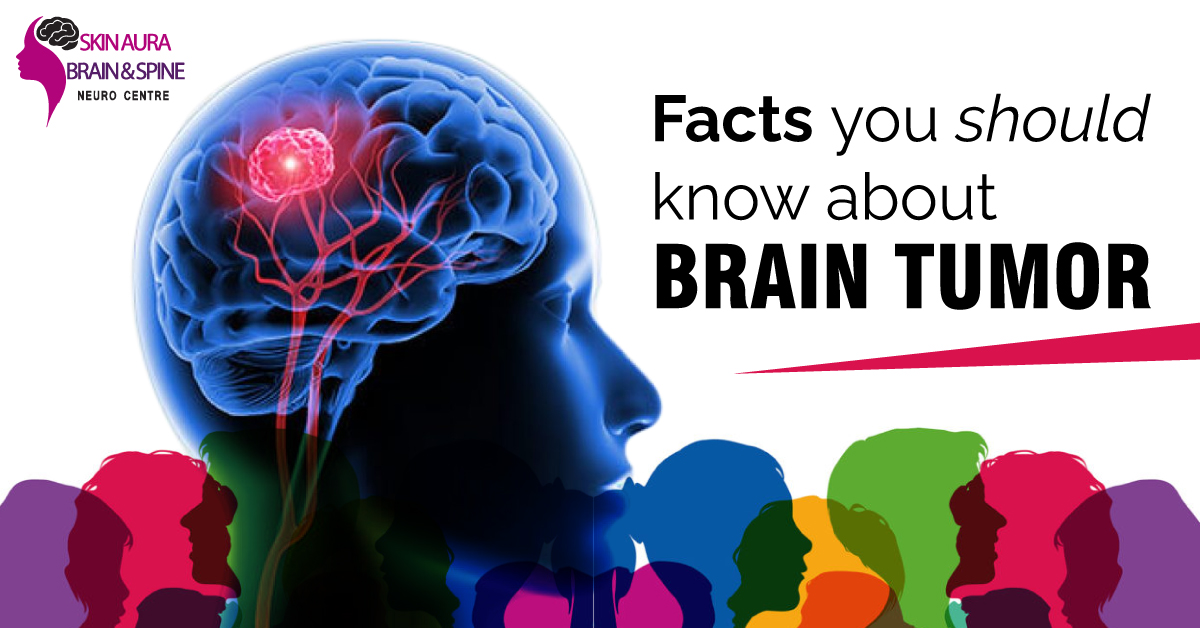A brain tumor also called an intracranial tumor, is a group of abnormal cells that grow in the brain without being stopped. There are many kinds of brain tumors, and how they are treated depends on the kind. Tumors can also start in the brain or other body parts and spread to the brain. This is called a “secondary” tumor.
This article will cover the facts about brain tumors you need to know.
Brain tumor patients show different signs
When a brain tumor is found, it will show up differently in each person. Some of these symptoms include changes in how you feel, talk, see, or hear. Patients may also feel weak, have headaches, feel sick, throw up, have seizures, or have trouble keeping their balance.
If you have headaches and your vision changes, it’s less likely that you have a brain tumor and more likely to have migraines, cluster headaches, or tension headaches. These situations shouldn’t worry you.
But if you have headaches or blurry vision that don’t get better with the usual medicines or if you feel sick or throw up often, you should see a doctor for a more thorough checkup. The best Brain tumor surgeon in DLF Gurgaon may order a CT or MRI scan based on your symptoms.
Brain tumors are not caused by microwaves, X-rays, cell phones, or sugar substitutes
A brain tumor was not caused by what you did. Brain Tumor Epidemiology Consortium (BTEC) studies have looked at large groups of people’s health records over many years to find risks of brain tumors. Some of the most extensive studies on how radio-frequency radiation affects the brain have found no reason to worry.
This myth comes from the mistaken belief that cell phones and other devices give off small amounts of electromagnetic radiation that could damage brain cells’ DNA and cause them to change into cancerous tumor cells.
This is not true, as shown by the facts. Radiation that could do this much damage would burn the skin and then grow a tumor simultaneously. Also, the skull bone is made of calcium, which is another barrier against radio-frequency radiation.
Also, dental X-ray technology has changed a lot over the years. Today’s X-rays use less radiation at brain tumor surgery clinics in Gurgaon, the machines use less power and can focus on a smaller area.
Who gets a brain tumor is not decided by their genes
Most brain tumors happen by chance and don’t happen very often in the general population.
But some rare genetic conditions make people more likely to get certain kinds of brain tumors. Neurofibromatosis types 1 and 2, tuberous sclerosis, Turcot syndrome, retinoblastoma, and Li-Fraumeni syndrome can make people more likely to get gliomas and other types of tumors all over their bodies. Since mapping the human genome and combining that information with new data in the age of personalized medicine, we are finding new genetic links between newly discovered genes and small nucleotide polymorphisms (SNPs).
Tumors in the brain must be treated
Most of the time, a benign tumor in another part of the body is good news. But because of how the brain works, even benign tumors can be dangerous if they pressure the brain, squeeze cranial nerves, or cause the brain stem to swell. In these cases, the tumors must be treated to stop neurological problems from worsening, which could lead to death.
Malignant tumors that start in the brain or spread to the brain pose problems. Surgery can’t get rid of all traces of a brain tumor as it can with tumors in other body parts. On a microscopic level, these tumors will always spread to the brain tissue around them. Even after a careful surgical resection, more treatment and monitoring will always be needed.
Both excellent and lousy brain tumors can come back. It is essential to keep in touch with a specialist to determine if and when a tumor has returned. Also, some treatments have side effects that last a long time and must be watched.
Once your Endoscopic Pituitary surgery in Gurgaon is done, your doctors will put you in a state of “surveillance,” where they will check your imaging tests and lab work from time to time. After enough time has passed, if you have a specific brain tumor, your doctors may tell you that you don’t need any more scans. But people should always keep an eye on their symptoms and return to their doctors if they notice anything new.
Depending on what kind of brain tumor a person has and how they are treated, they may have long-term effects. When treatment is over, many people feel relieved but don’t know what to do next. Patients often have to get used to a “new normal” way of life.
Brain tumors are nasty for your health. Early screening and diagnosis can help people with brain tumors live longer, go into remission, and get better. If you or a loved one is diagnosed with a brain tumor, you can talk to a doctor at Skin Aura Brain and Spine Neuro Center, who specializes in brain tumor treatment and care.
